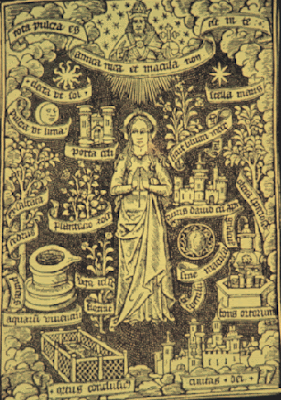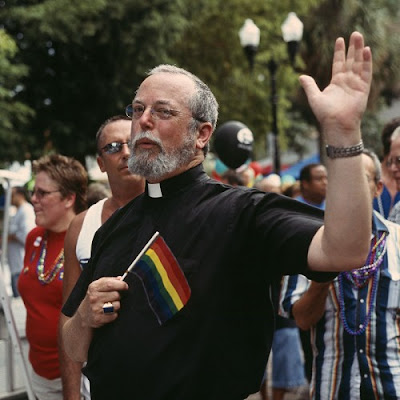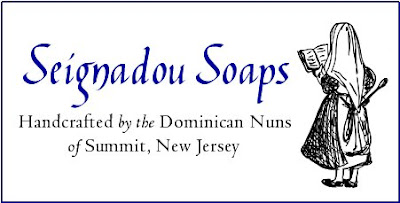Fr. Philip N. Powell, OP
St Paul
We wait for: Jesus the Just Judge, eyes radiant with his Father’s mercy; Christ the King, right hand lifted high in blessing; Jesus the transfigured sacrifice of Mt Tabor, sign of the Father’s promise of resurrection; Jesus the entombed, wrapped in burial clothe and laid to rest in his grave; Christ the broken man of the cross, lifted off by Joseph and washed for burial; Jesus, “the King of the Jews,” nailed hands and feet to the cross, admitting to heaven the crucified but repentant thief; Christ the scorned, the beaten, the one betrayed in the garden; Jesus the revolutionary criminal, arrested and abandoned by his friends; Christ the Bread of Life, the Cup of Salvation, given for us at Passover; Jesus the teacher, who teaches only truth; Christ the preacher, who preaches repentance and mercy; Jesus the healer, who draws out the faith of the sick, the crippled, the unclean and makes them whole; Christ at the wedding feast, the Son of Mary, changing water to wine, the first sign of his ministry to come; Jesus the baptized, raising from the Jordan at the hands of John; Christ the beloved son, the one to whom we must listen; Jesus the student in the temple, learning the Law and its fulfillment; Christ the misplaced boy, teaching his elders in the synagogue. Jesus, the God-child asleep in his bed of straw; Christ the newborn, receiving the reverend Magi; Jesus, the Spirit of God who overshadowed his Mother and ours to be born a man like us; Christ the Word at Creation, Wisdom at his Father’s side, prophet of reconciliation, instrument of both division and peace; we wait for the coming of the shoot from Jesse’s branch, Christ Jesus, Lord, Emmanuel, God-with-Us, I AM. We wait for the consummation of the world and the coming again of Christ the Just Judge!
And here you thought you were waiting for Santa Claus and your favorite Christmas ham! NO! Absolutely not…
Listen again to Isaiah: “The spirit of the Lord shall rest upon him: a spirit of wisdom and understanding, a spirit of counsel and of strength, a spirit of knowledge and of fear of the Lord.” He will judge with justice and “decide aright” for the poor. He will strike down the ruthless and slay the wicked. His coming will subvert the natural order of creation: wolf and lamb, leopard and sheep, lion and calf—all will “browse together” as guests at his table. The Child will lead the bear and cow to friendship and the lion will eat hay like the ox. His coming will be a sign for all the nations, and “the Gentiles shall seek [him] out, for his dwelling shall be glorious!” Paul, our witness, teaches us, “…that Christ became the minister of [the Jews] to show God’s truthfulness, to confirm the promises of the patriarchs, so that the Gentiles [the rest of us] might glorify God for his mercy.” We are not waiting on egg nog, ugly sweaters, gift cards to Cracker Barrel, battery-operated dolls with glam outfits, new cars, fake furs, or Britney Spears’ last CD. Our gospel acclamation says it all: “Prepare the way of the Lord, make straight his paths: all flesh shall see the salvation of God!”
It is too quick and easy to say that Advent is a season of preparation. For us, the ones who wait for the Thief to come at any moment, for us, being prepared is a way of life, right? I mean, sitting on edge, vibrating with adrenaline fueled tension, just waiting to spring into holiness, to snap into charitable action the second the heavenly trumpet blares and the first cumulus nimbus parts! Being ready is what we do. Trumpet. Cloud. Jesus. BAM! We on it and set to go. But, ummmm, just one small question: who are we waiting on again? We’ve heard King and Judge, Child and Lamb, Servant and Master, Emmanuel and I AM. By the way, what or who does an “I AM” looks like? Anyway, so we are sitting here, standing here, praying here, praising here, just being here, waiting in joyful hope for the coming of the Lord, but are we sure what it means “to make straight the path of the Lord”? And, for that matter, are we real clear on what “all flesh shall see the salvation of God” means?
Naw, I don’t think so. John the Baptist understood his mission perfectly. Leaping in his mother’s womb when a pregnant Mary visited his mom, John knew instantly what his prophetic responsibility would be: to announce the coming of the Lord to all flesh, all nations. And so, John preached in the deserts of
Our basic Advent question is: can you produce good fruit as evidence of your repentance? Let’s hope so. John warns, “Even now the ax lies at the root of the trees.” Is this meant to scare us? Frighten us like children into a last-second fit of self-flagellation and groveling for mercy? The picture John paints for us isn’t all that comforting. John says that though he himself baptizes you with water “for repentance,” the Lord, “will baptize you with the Holy Spirit and fire.” Wheat goes in the barn. Chaff goes in the fire. Who it is we are waiting on? We’re not waiting on Jesus the Social Worker. Jesus the Hippie Priest. Jesus the Babydoll of God. We’re not waiting on a pacified, commercialized, suburbanized, plastic Messiah. Our Blessed Mother did not give birth to a Group Facilitator or a Dialog Specialist or a Conflict Mediator. Our Father did not preserve the Virgin Mary from all stain of Original Sin so that she might bring into this world some guy to teach us to be nice to one another, to show us how to just get along. As much as we would love to believe that Christ will return and pat us on the head for our C- efforts, his Coming Again is about one thing and one thing only: the consummation of human history, the end of everything as we know it. So, let’s ask that Advent question one more time: can you produce good fruit as evidence of your repentance?
Truly, we must resist the temptation to domesticate our Lord. To whittle him down to a toy or sugarcoat him into a holiday candy. We are not playing a game. We are not feeling the warm-fuzzy of rum nog. The Good News of Advent is that he is coming again. This is the Good News of Christmas, the New Year, Lent, Easter, Pentecost, Ordinary Time, and every solemnity we celebrate in between and among the feast days of the saints. Our need to repent, to turn from sin and to love as God loves, is a daily, hourly need, a nothing-special-about-this-season need. If you are ready, stay ready. If you are not ready, get ready. Why? Because if you have ears to hear, listen: there is a voice crying out in the desert, “Repent! For the kingdom of heaven is at hand!”












